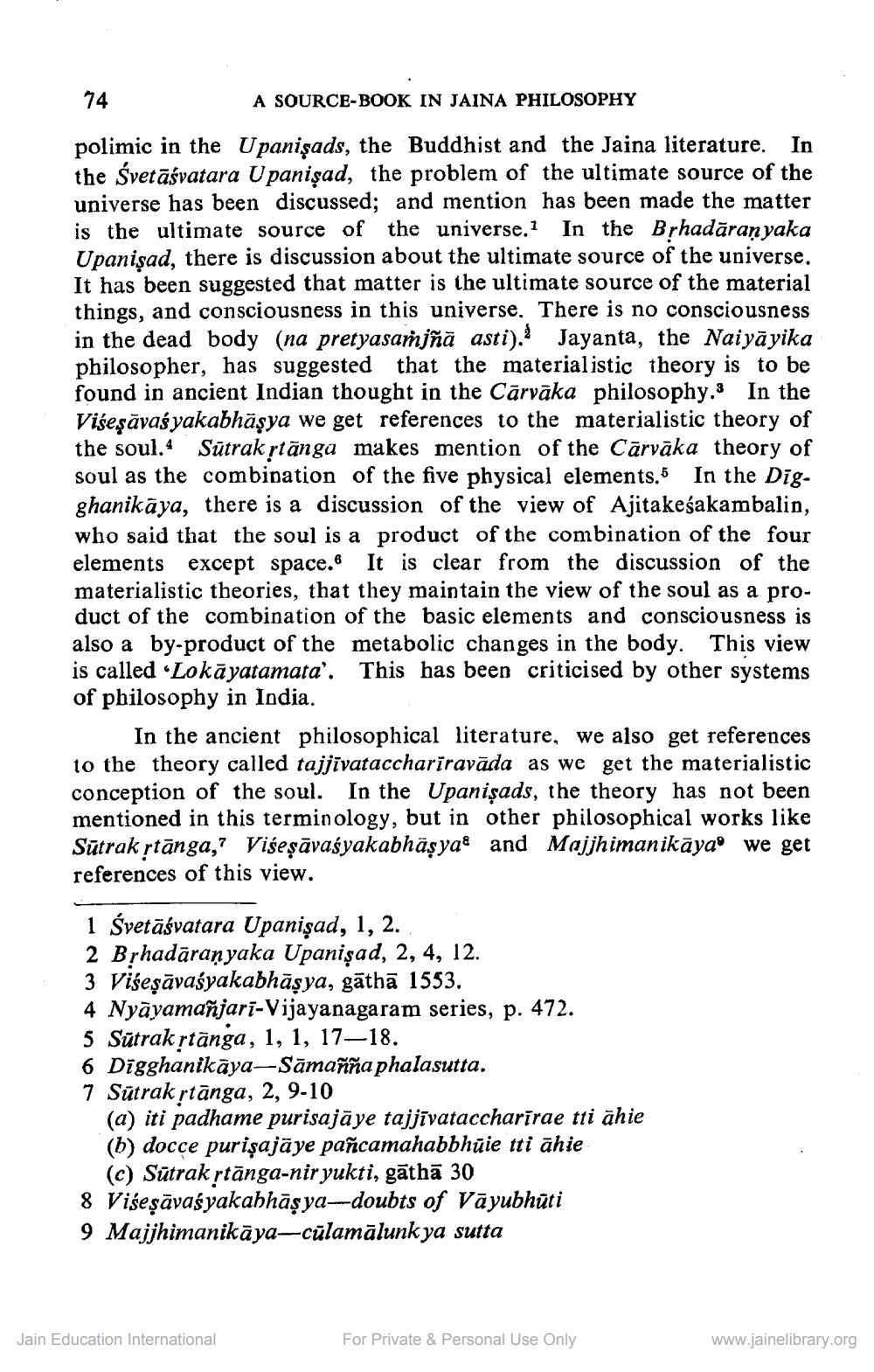________________
74
A SOURCE-BOOK IN JAINA PHILOSOPHY polimic in the Upanişads, the Buddhist and the Jaina literature. In the Svetāśvatara Upanişad, the problem of the ultimate source of the universe has been discussed; and mention has been made the matter is the ultimate source of the universe. In the Brhadāran yaka Upanisad, there is discussion about the ultimate source of the universe. It has been suggested that matter is the ultimate source of the material things, and consciousness in this universe. There is no consciousness in the dead body (na pretyasasjñā asti). Jayanta, the Naiyāyika philosopher, has suggested that the materialistic theory is to be found in ancient Indian thought in the Cārvāka philosophy. In the Viseşāvas yakabhäşya we get references to the materialistic theory of the soul.4 Sūtrak rtānga makes mention of the Cārvāka theory of soul as the combination of the five physical elements. In the Digghanikāya, there is a discussion of the view of Ajitakeśakambalin, who said that the soul is a product of the combination of the four elements except space. It is clear from the discussion of the materialistic theories, that they maintain the view of the soul as a product of the combination of the basic elements and consciousness is also a by-product of the metabolic changes in the body. This view is called "Lokāyatamata'. This has been criticised by other systems of pbilosophy in India.
In the ancient philosophical literature, we also get references to the theory called tajjīvatacchariravāda as we get the materialistic conception of the soul. In the Upanişads, the theory has not been mentioned in this terminology, but in other philosophical works like Sūtrak rtānga,? Viseşāvaśyakabhāşyae and Majjhimanikāya we get references of this view.
1 Svetāśvatara Upanişad, 1, 2. 2 Brhadāraṇyaka Upanişad, 2, 4, 12. 3 Višeşāvasyakabhāşya, gāthā 1553. 4 Nyāyamañjari-Vijayanagaram series, p. 472. 5 Sūtrak rtānga, 1, 1, 17–18. 6 Digghanikāya-Sāmañña phalasutta. 7 Sūtrak rtānga, 2, 9-10
(a) iti padhame purisajā ye tajjīvataccharīrae tti āhie (b) docce purișajāye pañcamahabbhūie tti āhie
(c) Sūtrak rtānga-nir yukti, gāthā 30 8 Višeşāvaśyakabhāşya--doubts of Vāyubhūti 9 Majjhimanikāya-cūlamālunk ya sutta
Jain Education International
For Private & Personal Use Only
www.jainelibrary.org




